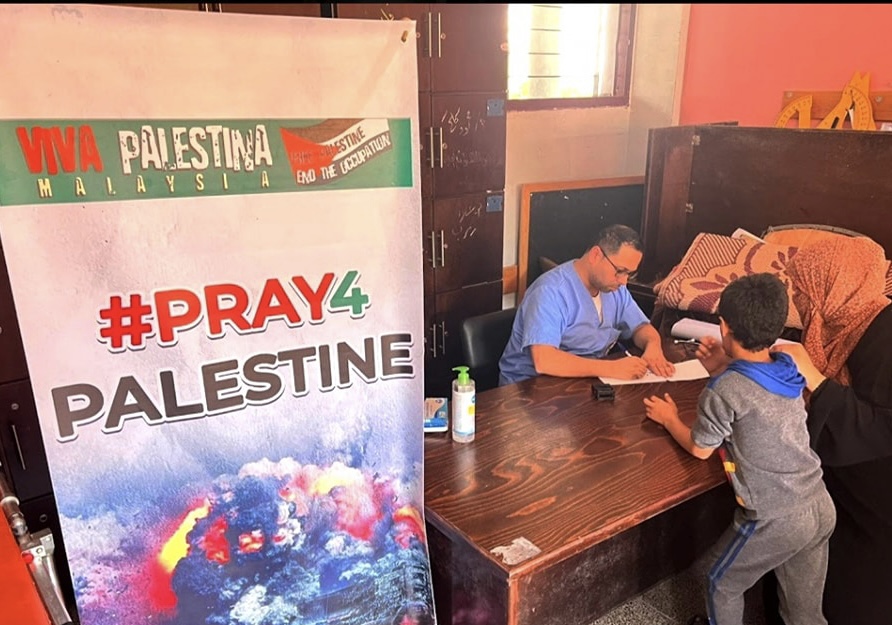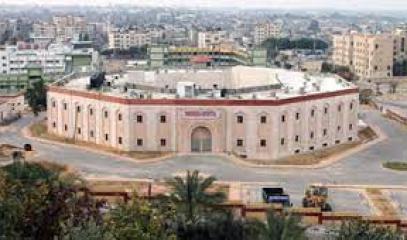Malaysians support the Palestinian people in the Gaza war
Malaysia’s government and public opinion show closeness to civilians affected by the conflict in the Gaza Strip. Israel and its US ally are accused of "atrocities". Editorials and articles back the Palestinian cause. Indonesia rejects the Israeli military’s claim that the Indonesian hospital in Gaza is used by Hamas.
Kuala Lumpur (AsiaNews) – “We will continue to fight" for the Palestinian people and demand an end to the Gaza war, said Malaysian Prime Minister Anwar Ibrahim, a sign that the war in the Gaza Strip has gone global, following terrorist attacks by Hamas in Israel on 7 October, a war that is still continuing a month later.
Transcending the borders of the Middle East, the issue now echoes around the world, starting with the Muslim-majority nations of Southeast Asia.
The Malaysian government has slammed Israeli leaders for the military escalation and its burden of civilian casualties, including women and children, as well as the United States for its blind support for Israel and its continuous criticism of Russia, which do not help promote dialogue and peace.
The prime minister pointed the finger at the "atrocities" committed by Israel, stressing that his country will not renege on its commitment to send aid to Gaza, while the crowd responded with shouts and chants, including "Long live Palestine" and "Free Palestine".
The words of the head of government also reflect editorials and articles published in the main newspapers since the start of Israel’s offensive in the Strip.
On Monday, Free Malaysia Today reported that a summit of heads of state and government of Muslim and non-Muslim nations would soon be held to discuss the war and seek ways to reach a ceasefire.
One example among many of the criticisms in the Malaysian media against Israel and the United States came last Friday, when the Malay Mail attacked Israel, citing the UN special rapporteur Francesca Albanese who highlighted the large number of deaths among Palestinian children from missile and air strikes.
Also on Monday, another editorial in Malaysiakini explicitly condemned the war, calling Israel "a vicious and evil colonial power," while calling for the country’s school curriculum to include Palestine and the Palestinian cause.
A more ambiguous editorial appeared in Free Malaysia Today on Sunday, which also outlined the difficulty in establishing who is right in such a polarising conflict, while referring to the "Israeli occupation" as the cause of the Hamas attack.
Last month, three demonstrations were held near the US embassy in Kuala Lumpur against Washington's support for Israel.
The US position is, however, more complex. On the one hand, the Us has condemned the extremist movement's terrorist acts; on the other, US Secretary of State Antony Blinken is calling for help for Palestinian civilians and limits on the military operations.
There are also analysts and experts in Malaysia who offer a more in-depth and balanced approach to a complicated crisis.
“Support for Palestinians is not the same as support for Hamas, and support for Palestinians is not necessarily contradictory to support for Israel,” says Irina Tsukerman, president of US-based advisory firm Scarab Rising.
Tsukerman has written about the Asian country's inclusion in the "Islamist Quartet" along with Turkey, Qatar and Pakistan, and does not shy away from the fact the prevailing sentiments are pro-Palestinian and anti-Israel.
For many analysts, Malaysia will continue to help Gaza through Egypt and support Palestine even in the event of a ceasefire.
Another Southeast Asian country has also been dragged, albeit indirectly, into the conflict. Indonesia Foreign Ministry has angrily rejected claims by the Israeli military that the Indonesian hospital (pictured 2) in Gaza houses a military complex and accommodations for Hamas.
It only provides "health services", ministry spokesman Lalu Muhammad Iqbal said in a statement. The facility is "under the responsibility of the local administration" with the help of Indonesian volunteers.
Mr Iqbal noted that the hospital has provided treatment to Palestinian patients, mostly affected by the Israeli military campaign in the Strip, whose actions are repeatedly defined as "atrocities" and disrespectful of the rights of the civilian population involved in the conflict.
(Mathias Hariyadi contributed to this article)








.png)










